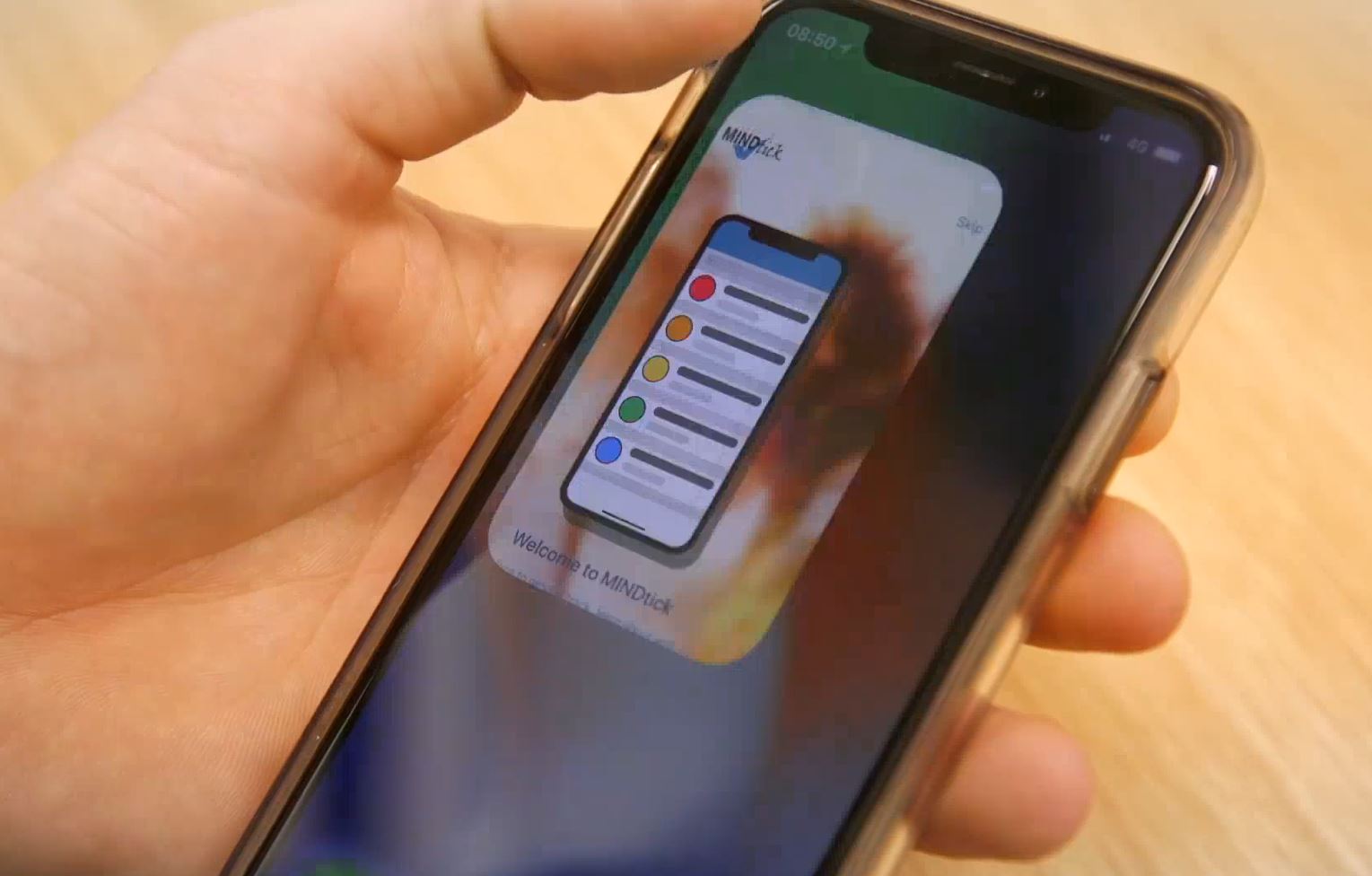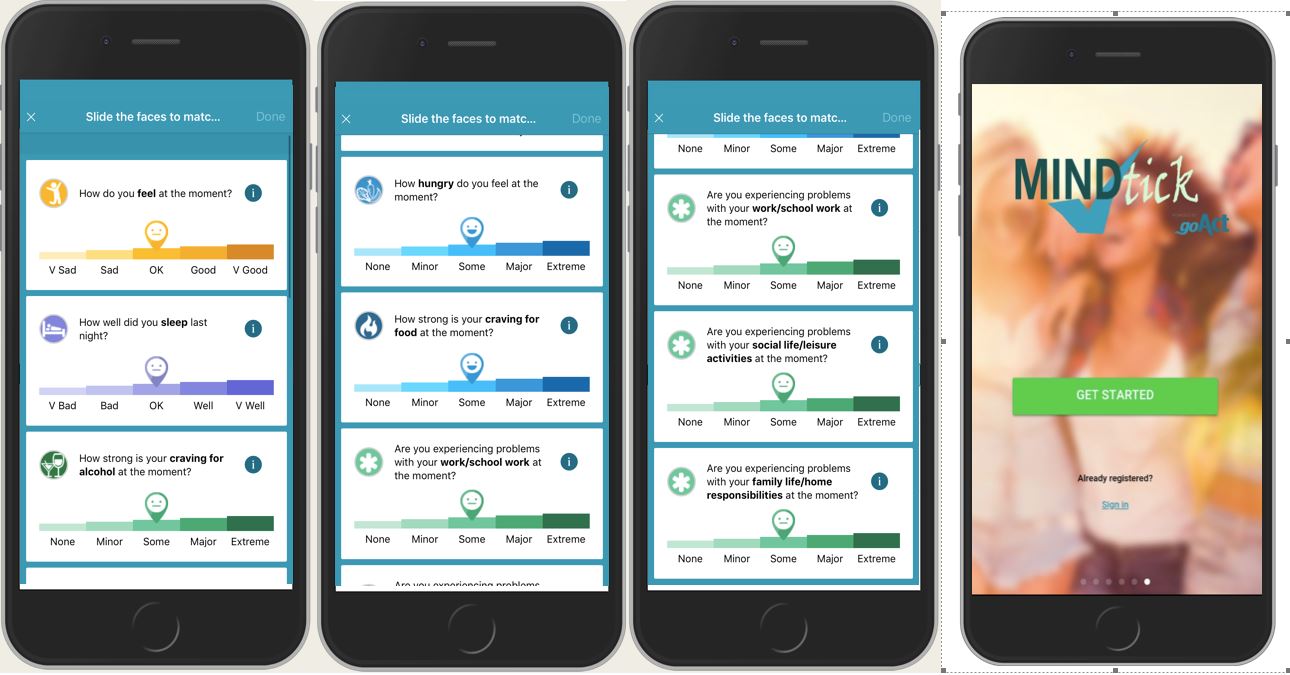
Mobile health interventions such as MINDtick will help to transform mental health management, particularly for Australians living in remote and regional areas.
MINDtick is being trialled in South Australia after being developed by the digital psychiatry team at Flinders, with input from leading Harvard Professor Susan Murphy and funding from the Breakthrough Mental Health Research Foundation.
Professor Murphy’s Australian Mathematical Sciences Institute (AMSI) lecture tour this month, supported by the Statistical Society of Australia, includes Melbourne, Adelaide, Perth, Brisbane and Sydney.
A global leader in Statistics and Computer Science, Professor Murphy uses mathematics and statistics to explore how Australia can optimise mobile health technology including phone apps to support management of chronic illness and mental health.
“Using data, we can determine the impact of key factors such as location, stress, time of day and mood on when and where treatments are most useful,” Professor Murphy says.
As Aussie farmers struggle with mental health in drought conditions, she believes technology, including her Australian collaboration, MINDtick, could deliver enormous benefits for Australians unable to frequently access health services.
“Mobile health interventions are readily accessible to people who live in rural or isolated areas expanding service delivery and access to critical supports,” she says.
In Adelaide, Professor Murphy will speak at Finders University, where long-time collaborator Associate Professor Niranjan Bidargaddi is based.
Personal health informatics and digital psychiatry expert Associate Professor Bidargarddi works closely with Professor Murphy on mobile interventions, including the development of MINDtick (screenshots above).
Now in trial, the Finders University-developed phone app aims to assist early diagnosis and management of mental illness using mobile phone data to monitor known risks and trigger intervention.
“By detecting subtle changes in user feelings and behaviour, we can act on early warning signs before a crisis,” says Associate Professor Bidargarddi.
As well as enabling naturalistic intervention to support self-management and awareness of support needs in the participant’s own environment, the tool aims to allow personalised care and prioritisation of crisis patients, he says.
Flinders University Professor of Psychiatry Michael Baigent, who is a member of the national beyondblue board of directors, says Australians have benefited from similar apps such as the ‘Beyondnow’ app.
He believes MINDtick will change mental health care.
“The app offers many patient and therapeutic benefits with the potential to bring about game-changing results in research and treatment,” Professor Baigent says.
The AMSI and SSA annual lecture tour provides a platform to strengthen ties between the international and Australian mathematical and statistical communities, while allowing broader audiences the rare opportunity to engage with field leaders.
AMSI Director Professor Geoff Prince said the Institute was delighted to partner with SSA to co-sponsor Professor Murphy’s tour of Australia and boost engagement between the research and general communities.
“Susan’s work highlights the exciting impact of statistics and mathematics on everyday lives and how we live and engage with the world,” says Professor Prince.
Flinders University will host a public lecture at 630pm the Bedford Park Campus on Thursday 16 August, as well as an afternoon specialist lecture at Flinders at Tonsley at 1pm on the same day.
Professor Murphy is a Fellow of the Institute of Mathematical Statistics, a Fellow of the College on Problems in Drug Dependence, a former editor of the Annals of Statistics, a member of the US National Academy of Sciences, a member of the US National Academy of Medicine, and a 2013 MacArthur Fellow. Focusing on improving sequential and personalised decision-making in health, including just-in-time adaptive interventions in mobile health, Professor Murphy’s work is funded by the US National Institutes of Health.
If you find that you are experiencing any form of psychological distress from participating in the study, and are in need of some help, support or guidance, in the first instance contact your healthcare professional. If you would prefer an alternative option, you could contact one of the following support services who will be able to help you:



